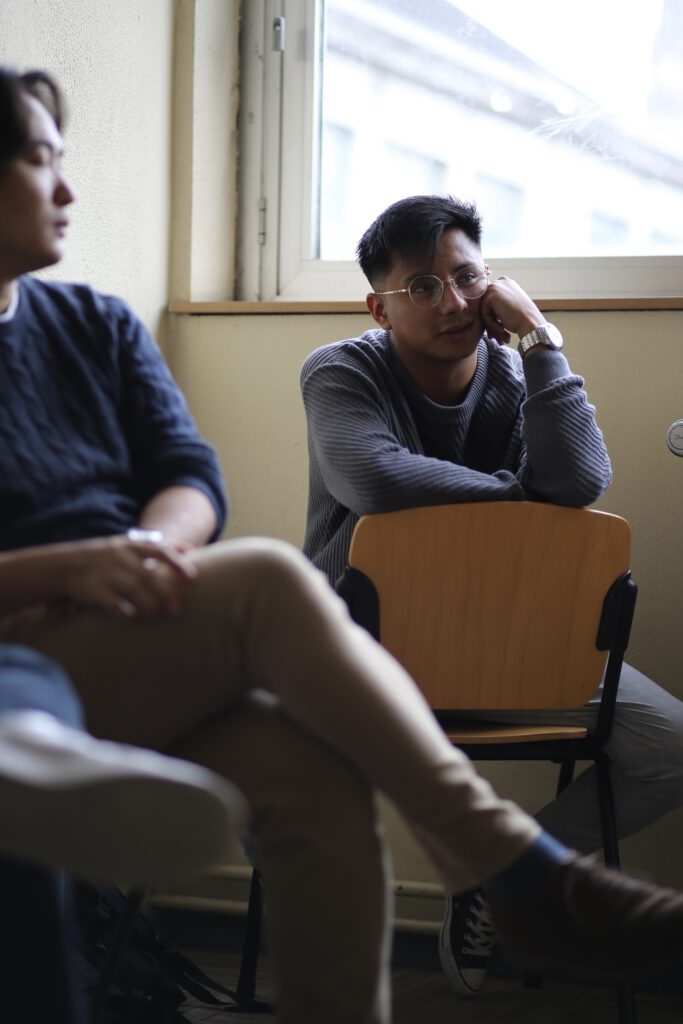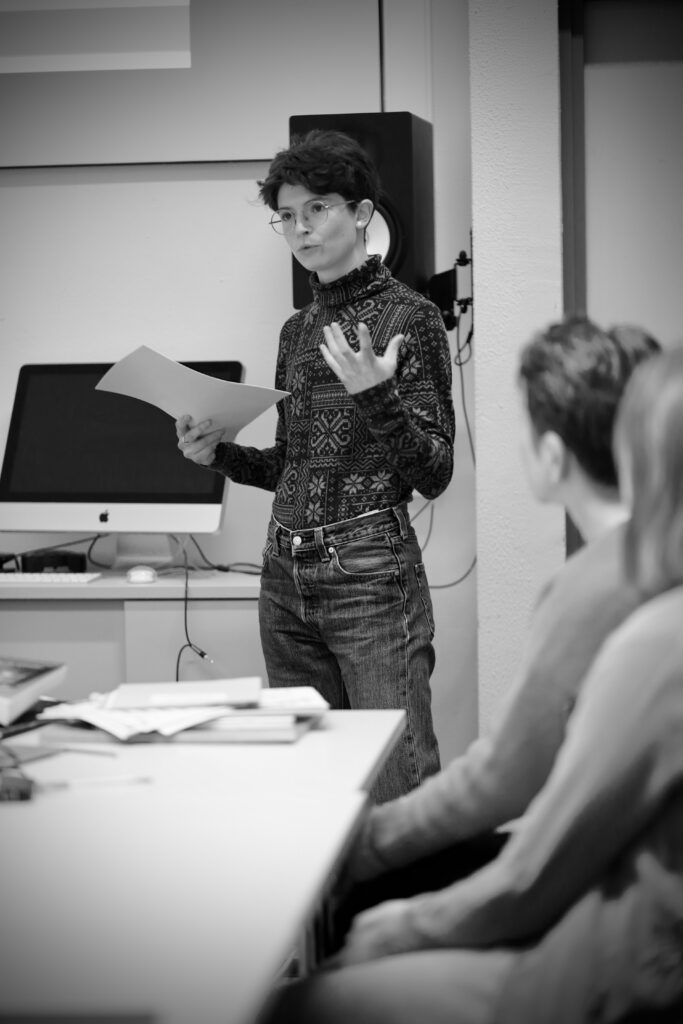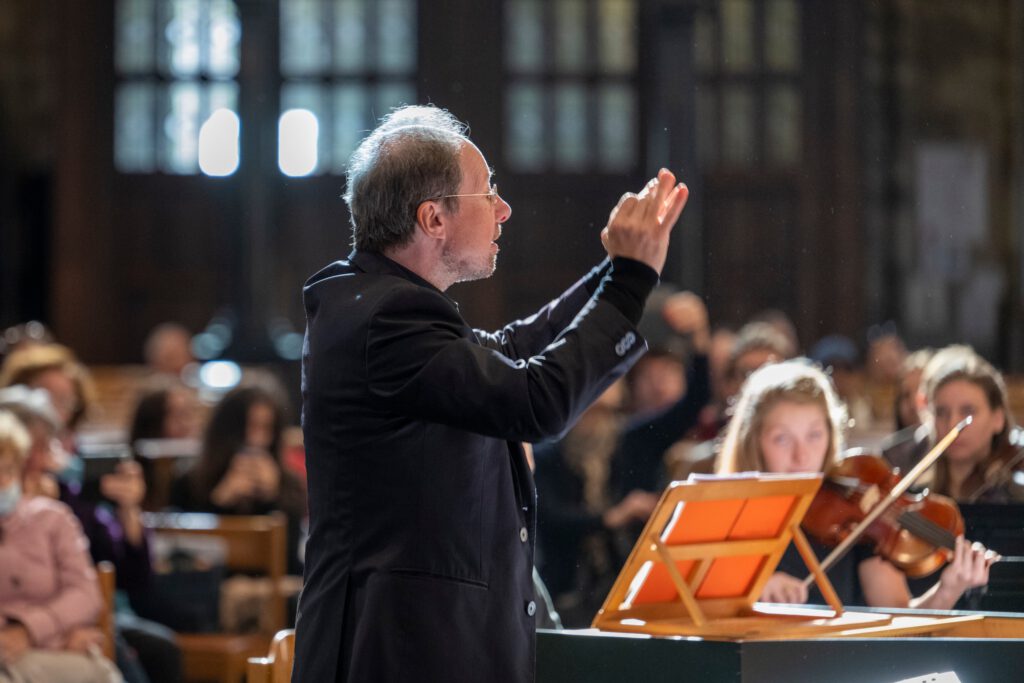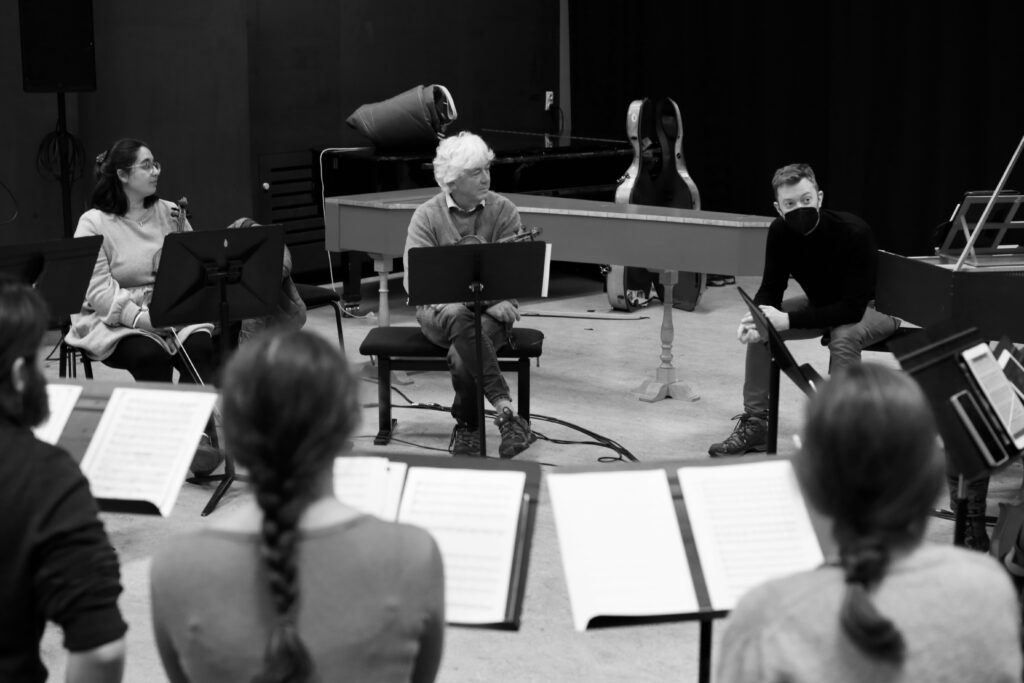Why study in our department?
You might be wondering, "Why here and not elsewhere?"
All the answers to this crucial question can be found here. Additionally, remember that you can fully immerse yourself in the experience over a weekend through our workshop!
A rich and varied curriculum
A rich and varied curriculum
We are currently experiencing a period of profound change. Now, more than ever, young musicians must not only master their craft to become reliable professionals but also possess the flexibility to adapt to anticipated changes. Additionally, they need the creativity to transform themselves into engaging and valuable artists.
At the Early Music Department of the Royal Conservatory of Brussels, we address this reality by providing our students with a comprehensive training program:

Research in the service of practice
Research in the service of practice

Throughout their tenure in our department, students acquire the comprehensive skills essential for meeting the diverse demands placed on today's early music professionals with utmost effectiveness.
We also foster their individual research initiatives, supporting their personal development and imparting the working and research methods that will empower them to emerge as the next generation of accomplished performers.
Research and practice are the cornerstones of our teaching philosophy.
Each year, our research colloquium establishes the tone and unfolds new perspectives, involving the entire department in the exploration of specific themes or repertoires.
Additionally, we regularly organize study trips to destinations like Venice, Naples, Bologna, Rome, and Brussels.
Instrument fairs held at the Conservatoire provide valuable opportunities to connect with instrument makers.
Furthermore, our multidisciplinary study days empower students to delve into various aspects of chosen subjects or to learn about practices as crucial as those of early dance.
Numerous projects every year
Numerous projects every year
The year of study is punctuated by numerous musical projects.
The Early Music Department has cultivated valuable partnerships with festivals such as Automne musical de Spa, Embaroquement immédiat in Valenciennes, Festivita, and Musiq3 in Brussels. These collaborations, along with the Conservatoire's vibrant concert season, offer students a wealth of experience to prepare for their professional careers. Our department's teachers provide coaching, regularly enhanced by the artistic direction of distinguished guests, including figures like B. Foccroulle, S. Kuijken, J. van Immerseel, and more.

A tightly-knit, devoted team.
A tightly-knit, devoted team.

If your passion lies in early music and research, if you dream of a place where, beyond robust conventional teaching, you can delve deeper by questioning practices and reshuffling the cards amidst an abundance of ideas, then the Early Music Department of the Royal Conservatory of Brussels is where you'll be captivated.
You will be embraced in a warm yet studious atmosphere, fostering discoveries, meaningful encounters, and the cultivation of a joyful musical practice.
